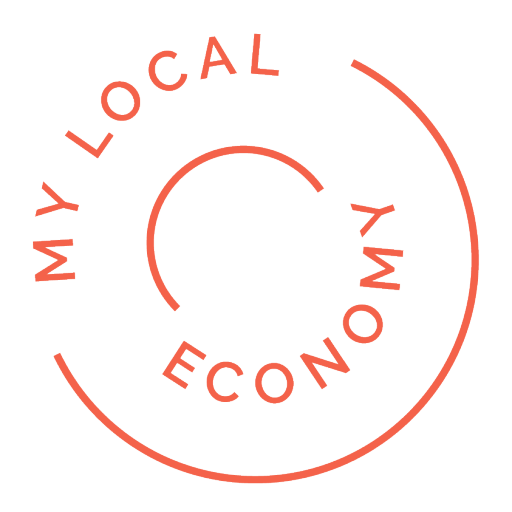Although 2022 will be another year of uncertainty and major challenges, local economic development offers a lot of insight and solutions
The future is difficult to predict – especially in the current economic and political environment. Here in the UK we are facing many recent challenges that have resulted from Covid and the UK’s exit from the EU, and many deeply ingrained historic challenges.
In this article, Glenn Athey, Director of mylocaleconomy discusses a number of issues which he thinks will continue to be of importance and concern in 2022. Views, interpretations and questions are welcome.
Slow recovery for the UK, with bumps along the way
A majority of economists polled for the Financial Times said that UK living standards would worsen in 2022. Poorer households will be hit the hardest by inflation and tax rises.
Global headwinds present significant challenges – high energy prices, inflationary pressures, sustained labour shortages, and disruption to supply chains. With continuing waves of virus infections, this increases uncertainties and the likelihood of shock events. Climate change presents increasing risks.
Whilst the UK might be enjoying high growth rates – this is coming from a much harder economic contraction in 2020, with total GDP yet to recover to 2019 levels. So on international comparative measures, the UK economy is weaker.
For the UK – the economic damage of Brexit will continue to hamper the recovery. It makes it harder to address trade, supply chain and labour supply issues. Rising inflation is unlikely to be countered by a sufficient rise in wages, which are being taxed more in 2022 and beyond. Tax rises will affect poorer households more, as will any further restrictions on sectors due to Covid-19.
The future for the intangible and tech economy is looking a bit brighter than other sectors…
The industries that don’t depend so much on transporting goods across the country or world, and overcoming trade, customs and regulatory barriers – are more likely to thrive. If they don’t have to have all their staff on one office or location in the same city in the world – even better.
For the UK there is the special condition of Brexit – that in a very short period, the UK has erected trade and customs barriers with its nearest single market – the EU. For the rest of the world – trade has been massively disrupted by Covid-19, and the rising costs and reduced capacity of shipping. There are also fears of increasing trade and economic tensions between China and the USA.
Industries that create digital content and services, such as film, TV, software, algorithms, data analysis, AI and automation – will do well. Consultancy services, particularly those who do not have a heavy regulatory compliance, or are operating with compliance effectively, or are already embedded within global firms – are also at an advantage.
It may be the case that labour scarcity and pandemic-induced digitalisation might induce a rebound in business investment in new technology. We will have to wait and see.
Another recent FT article examined which companies were the winners and losers from the pandemic produced a mixed picture for tech. Silicon Valley dominates the list of companies whose market value grew the most since 01 January 2020, particularly Apple, Alphabet and Microsoft. Digital media firms such as Netflix have also boomed. Non-tech companies thrived too, including Accenture (consultancy), Thermo Fisher (diagnostics) and Home Depot (retail). Conversely, tech companies such as Zoom Video and Peloton faded after an initial rush. Intel continues to struggle to compete with rivals Nvidia, Taiwan Semiconductor Manufacturing Company and AMD.
Local economies can respond by: supporting creative, cultural, digital and knowledge-based sectors and businesses and getting a greater in-depth understanding of tech, digital, creative and intangible markets and services. Many cities and localities already excel at this, and we need to continue and broaden this support.
The tangible economy has a much more uncertain future
Those industries that produce or sell physical goods are facing much more challenging times. Much manufacturing is now set up for just in time production with wide supply and value chains that operate internationally. Covid-19, disruptions to supply chains and markets have introduced new risks and costs. For those buying materials and supplies, this has increased costs. For businesses dependent on high street sales – many have already established online sales and delivery services. Oil and Gas has suffered enormously, with the profits and values of major oil firms plummeting, as demand fell during the pandemic and lockdowns.
Local economies can respond by: taking on greater account management and troubleshooting roles for large, important manufacturers. Local stakeholders shouldn’t be the last to hear about a corporate restructuring or relocation – they should be amongst the first. The move to local distribution hubs is also well underway. Sensible planning could help to facilitate this, and create local jobs.
Industrial restructuring will continue
Industrial change and restructuring will continue. It’s a case of not finding a one-handed economist. On the one hand, cities and urban areas are being hard hit by office jobs and retail restructuring. On the other hand, the massive greening of the economic due to take place – will be most intense where the majority of residents and businesses are located and work, consume and travel; and where the main infrastructure nodes are – in cities and urban areas. There will be massive change, big structural and transitional challenges, but also big opportunities.
Local economies can respond by: keeping informed about changes happening now, and mooted in the future – and being able to relate this to the local economy. Have plans and road maps for carbon reductions. Develop scenarios and options for discovering the implications of change. Be flexible and agile about tools and responses.
Inflation – here, and now, followed by increased borrowing costs
The cost pressures on economies are immense. With rising supplier and material costs, increased distribution costs, exchange rate fluctuations…. There are a lot of upside pressures to prices, and few downside pressures. Witness the UK – where inflation is becoming rampant. Due to Covid-19 and Brexit – costs have increased across the board – fuel, construction, commodities, and labour. The only realistic tool in the box for the Bank of England is interest rate rises to dampen inflation. Witness the runaway inflation rates in Turkey and the economic damage being wreaked there.
Local economies can respond by: supporting businesses to manage costs and diversify suppliers; and to help supply and train workers and skilled labour.
Increased borrowing costs… and increased business indebtedness and default
As interest rates rise, so will borrowing costs for businesses. UK businesses face a once in a lifetime debt timebomb due to Covid-19 rescue loans and this is also affecting their ability to raise new finance. Many businesses will not find a route out of indebtedness in the current economic environment and will default and face buyout, bankruptcy or closure.
Local economies can respond by: supporting businesses with financial advice and tools to help minimise the damage of closure.

Political uncertainty
National governments face important elections, and no-one is quite sure how the electorate rates their recent performance. Take the UK – with the government making little headway in its reformist agenda due to Covid-19, the economy faces ongoing difficulties of transition from Brexit, and the mixed reaction of the electorate due to the government’s handling of the Covid-19 pandemic.
Once would think that the UK government would pull out some big policy announcements and sums during the final three years of its term until the next General Election – but no, it seems to be regressing into fiscal austerity, rebadging old money as new, and handing out penny packet grants for ribbon cutting opportunities for Ministers.
In 2022 – we should expect some political fireworks, but it seems there is little appetite amongst the ruling political party for grand reforms to the economy and public services.
Local economies can respond by: having a well-researched, well founded and community-supported economic strategy and agenda. It is simply no longer a useful tactic to continue to rely on UK central government for direction or strategy as the policies and funding regimes change so quickly, and tend to be very fragmented. Place based solutions and integrated strategies and delivery are required. Local authorities, business associations and other pressure groups need to combine forces here and develop a clear case and agenda to influence national politics – to give us the tools for the job at the local level.
The Levelling Up agenda – localities need to take ownership of this
The UK government has increasingly shown recognition of the massive spatial inequalities in economic performance, wealth and the social fabric of the UK. However, there is little to show for this in terms of big transformational policies and investments.
Levelling up – competitive grant fund, anyone?
My prediction is that this will continue to be an area for debates, rumours and minor grant funds, but expect to see little transformational change. Let’s face it folks – to make a dent into levelling up we’d need to see comprehensive policies for industrial strategy, innovation, enterprise, skills, education, health, welfare, housing, infrastructure – as well as increased local devolution of powers and resources, and a massive ramping up of capacity and capability in the community of practice for local economic development, regeneration and local public services in general. This is something I’ve written about here (https://www.linkedin.com/pulse/large-scale-integrated-sustainable-urban-futures-programme-athey/). If this was going to happen, we wouldn’t be hearing rumours about restructuring LEPs and counties as being the next big idea.
Local economies can respond by: taking ownership of the agenda, coordinating research, developing solutions and lobbying and advocacy. There’s a massive space to fill in terms of good ideas and solutions for central and local government working together. Central government isn’t going to fill it – you can. If local government, trades unions and local and national business associations could collaborate here – this would be powerful.
PS – we have made a good start here in this project for the Local Government Association.
Inequalities and deprivation – we need impact and equality appraisals
Over the past decade, there has been too little concern for inequalities and deprivation in the planning of, and investment in public services and economic development initiatives. It is time this changed. There has been much good work in places such as Sheffield and Luton in discussing inequalities and inclusion amongst stakeholders and local authorities.
However – it is time for us to take this on board as economic development professionals. We need to develop the understanding, expertise and tools to be able to appraise the impacts and implications of economic performance, investments and trajectories on inequality, diversity and deprivation.
Local economies can respond by: putting inequality and deprivation considerations into everything they do. The climate change agenda should be front and centre of this. Measures to mitigate against climate change will have uneven impacts on communities and individuals. We will need to recognise this and tailor solutions.
The fundamentals are still there – whether weakness, challenge or opportunity
The UK, and its localities continue to face the challenges of low productivity, low rates of innovation, and spatial disparity in terms of creating skilled jobs and wealth. Business investment in the UK has declined since 2016. The lack of long-term planning and funding for infrastructure, skills, and regeneration remain.
Despite the heroic and effective actions of local authorities, combined authorities and local enterprise partnerships during the Covid-19 pandemic, they still suffer from inadequate recognition, priority, resources and powers.
Local economies can respond by: continuing to invest in economic development capabilities and capacities, and to prioritising economic development, inclusion and regeneration. It is getting to the stage where central government is a failed model for policy and delivery in these areas – time to put forward an alternative model.
What are your predictions or thoughts about 2022 – we’d love to hear from you, please share these thoughts.
Final message: unfortunately in the UK, the national government is fairly lacklustre in terms of actual delivery against national and local economic priorities and challenges, no matter what the political rhetoric says. Policy and delivery ideas for local and regional devolution could provide some powerful alternative policy solutions and choices. If we make the case and hold the debates, we open up the choices available to us. Without the case, the arguments, the discussions –we limit the options we get to choose from.
Glenn has 25 years of experience as an economic development professional, including stints in three regional development agencies and 13 years as an advisor to local leaders and officials. You can read more about Glenn here and subscribe to his regular ‘ED in practice’ newsletter here.





